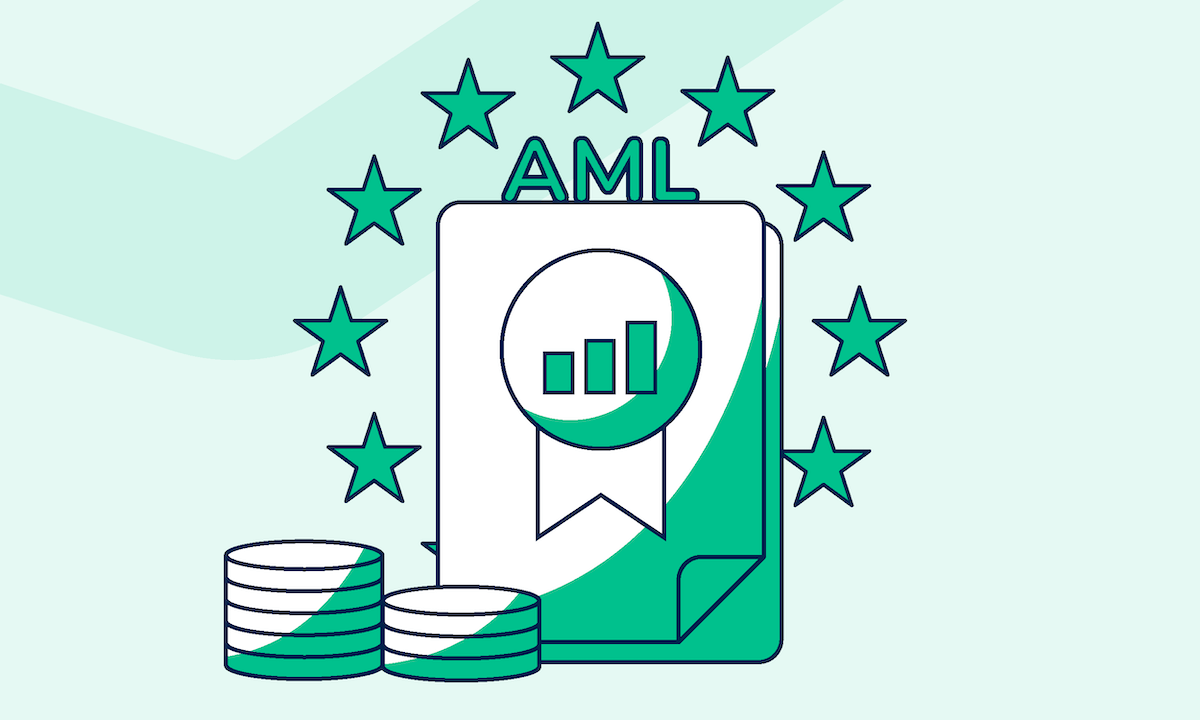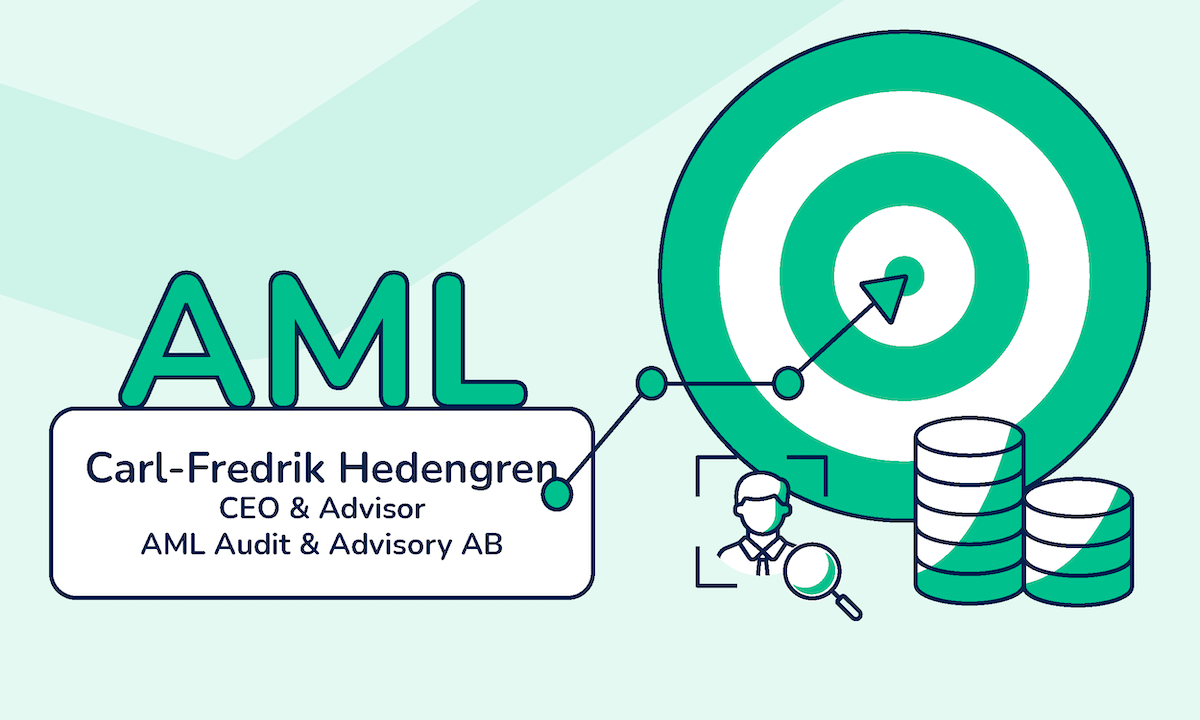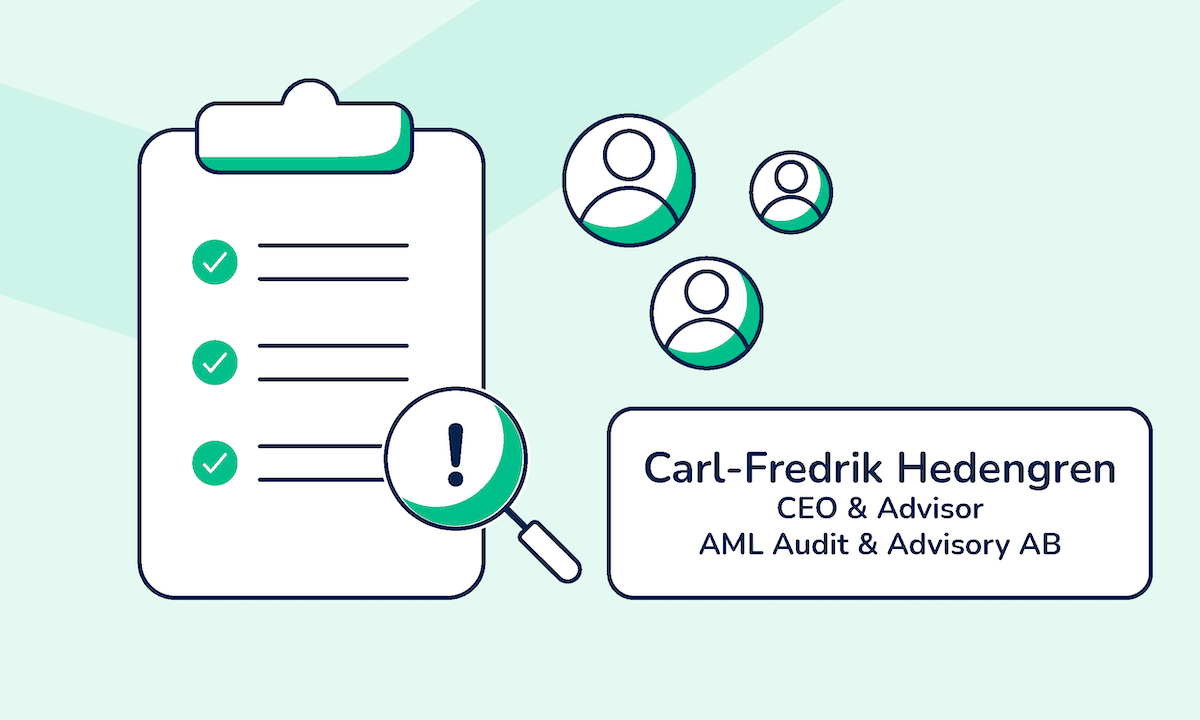The anti-money laundering legislation is designed to stop criminals from laundering the proceeds of their illegal activities and to prevent the financing of terrorism. An essential requirement of anti-money laundering laws is that obliged entities conduct enhanced due diligence on all customers that pose a high risk of money laundering or terrorist financing.
This article explains what enhanced due diligence is and contains a practical checklist to help you comply with the enhanced due diligence obligations set out by AML laws.
What is enhanced due diligence?
Enhanced due diligence refers to the additional measures that obliged entities must apply when entering a business relationship with a high-risk customer. Such measures include:
- Closer monitoring of the business relationship
- More frequent and rigorous examinations of transactions
- Obtaining additional information from the client
- Verifying the client’s identity information against multiple reliable and independent sources
What constitutes a high-risk customer?
A high-risk customer is an entity that poses a high risk of money laundering or terrorist financing. The following are examples of high-risk customers.
Politically exposed persons
Politically exposed persons, aka PEPs, are people who have held or currently hold a prominent public function (e.g., prime minister, president, senior executive of state-owned enterprises, senior official of a political party, etc.). Politically exposed persons are considered to be high-risk because they hold prominent positions that can be abused for money laundering.
Under the anti-money laundering legislation, family members and close associates of politically exposed persons are also PEPs. Therefore, enhanced due diligence measures are to be applied before entering a business relationship with them.
Clients from high-risk third countries
Obliged entities must carry out enhanced due diligence for clients that are located in countries that are on the EU list of high-risk third countries. This is because the countries on the list have strategic deficiencies in their AML/CFT regimes.
Other customers that are deemed as high risk include but are not limited to:
- Clients who have links to industries that are prone to corruption (e.g, construction, waste management, mining, oil, gas, pharmaceuticals, healthcare, etc.)
- Clients who have links to sectors that are associated with a high risk of money laundering or terrorist financing, such as casinos, cash-intensive businesses, dealers in precious metals, real estate agents, etc.
- Clients who have complex and opaque ownership and control structures
- Clients that are personal asset-holding vehicles
- Clients that request transactions that are complex, abnormally large, or have an unusual pattern
- Non-resident clients whose needs could clearly be better serviced elsewhere
- Clients seeking excessive anonymity or secrecy
- Clients who issue bearer shares or have nominee shareholders
- Clients who are respondents based in a third country (in the case of correspondent banking relationships)
Why is it important to apply enhanced due diligence measures for high-risk clients?
First and foremost, companies must apply enhanced due diligence on high-risk clients to fulfill their legal obligations. Failure to comply with the enhanced due diligence requirement can lead to serious sanctions for your business.
Secondly, enhanced due diligence measures help you protect your business against the risk of being misused for money laundering or terrorism financing. This is especially important because money laundering scandals can severely impact your company’s reputation, leading to a loss of customer trust.
Enhanced due diligence checklist
Obliged entities must apply enhanced due diligence measures before entering a business relationship with a high-risk customer, but also when the risk level associated with an existing customer changes from low or standard to high.
This EDD compliance checklist highlights the most common enhanced due diligence measures that companies must apply.
- Obtain additional information during the KYC process (e.g., information about the reputation of the client’s beneficial owners, information about the beneficial owner’s close family members and close business partners, information about the beneficial owner’s business activities, etc.)
- Obtain information about the purpose and the nature of the business relationship (e.g., the number, size, and frequency of transactions that the customer expects to carry out throughout the business relationship, the destination of the funds, why the customer wants a specific product/service, etc.)
- Verify the identity of the customer and its beneficial owners against multiple independent and reliable sources (e.g., passport, national ID card, extracts from official business registers, extracts from civil/population registers, etc.)
- Increase the frequency of KYC checks throughout the business relationship
- Closely monitor the client’s transactions throughout the business relationship
- Verify the client’s source of wealth and source of funds by requesting copies of tax returns, audited financial statements, pay slips, deeds, etc.
- Obtain approval from senior management to enter or continue the business relationship with the client
- Request that the first payment be made requiring from an account verifiably in the client’s name
What is the difference between customer due diligence (CDD) and enhanced due diligence (EDD)?
The main difference between CDD and EDD is that enhanced due diligence is more thorough and comprehensive than standard customer due diligence. EDD measures are designed to supplement CDD measures in situations where a customer poses a high risk of money laundering or terrorist financing.
Companies subject to anti-money laundering laws must carry out customer due diligence on all their customers. On the other hand, enhanced due diligence is only required for high-risk customers.
How can Penneo KYC help you meet your enhanced due diligence obligations?
Penneo KYC is a digital software that enables companies to automate their customer due diligence (CDD) and enhanced due diligence processes (EDD). With Penneo KYC, you can save time, meet your legal obligations, and provide a better experience to your clients.
Our software is designed to help you meet the EDD requirements set out by AML laws. Here’s how Penneo KYC can make your life easier:
Guided risk assessment: The software helps you assess the ML/TF risk associated with each customer. Based on the risk assessment, you can decide what level of customer due diligence is required for each individual customer.
PEP and sanctions lists checks: Our platform screens your clients and their beneficial owners against sanctions and PEP lists on a daily basis, and notifies you of any changes.
Collect information and documents: Penneo KYC makes it easier for your customers to provide you with the information and documents required in the KYC process. You can select the documents you need, and send out the request. The client can fulfill your request from any device, at their own convenience.
End-to-end encryption: All data in Penneo KYC is end-to-end encrypted to protect your customers’ personal information and documents.
Demonstrate your compliance: All actions you take to ensure compliance are recorded in an audit log that you can use to demonstrate your compliance to the authorities.
Store all KYC documents in one place: All KYC documentation is saved in Penneo KYC, so you can easily access and retrieve it when you need it.
Reduce manual data entry: Penneo KYC has prebuilt integrations with popular accounting tools, allowing you to easily share data between platforms, save time, and minimize errors.
As you can see, enhanced due diligence doesn’t have to be a chore. With a tool like Penneo KYC, ensuring anti-money laundering compliance and meeting your EDD obligations is a breeze!





